
The group of eight students and three faculty toured the Central American nation in March
A group of students in the University of New England’s Doctor of Physical Therapy (D.P.T.) and Master of Science in Occupational Therapy (M.S.O.T.) programs recently returned from a springtime trip to Guatemala, where they toured clinical facilities and adaptive equipment manufacturers, all while taking in the joy and wonder of education done abroad.
The trip was no ordinary spring break. The group of eight students and three faculty glided into La Aurora International Airport on March 10 and spent the next seven days meeting with local providers and patients and learning about adaptive therapy practices in the Central American nation.
An Immersive Cultural Experience
Watch highlights from days 1-3
The aim of the trip, students and organizers said, was to expose students to new cultures and learn about their fields of study in a lower-resourced setting.
“This was an opportunity for us to expand our cultural humility and work with people from different backgrounds,” remarked Haley Gagne (D.P.T., ’25). “We have plenty of people coming to the U.S. from different cultures, and they might not be used to our ways of treating patients. This was a good way for us to bring our knowledge and share it with them, while also taking away their own experiences.”
And experience, they did — more than you might think.
New Outlooks on Clinical Education
A highlight of the trip was a tour of the Transitions Foundation wheelchair and prosthetics clinic in the city of Antigua. The clinic manufactures, from scratch, mobility equipment and prosthetics tailored to every client. patient. “Each patient leaves the facility with a perfectly fitting device that is suited to their needs. That’s really amazing,” remarked Kiara Boeck (M.S.O.T., ’24). The group returned to the facility several times during the week to observe patient interactions and even cheer on teams in a wheelchair basketball league.
Transitions was only one stop on the students’ journey. The group also voyaged to the Virgen del Socorro Hospital and Rehabilitation Center, an inpatient facility mainly focused on children with adaptive and sensory needs. There, physical therapists and occupational therapists — called “teachers” in Guatemala, where occupational therapy is still a budding field — guided the group through their daily routines and how they interact with patients.
A similar center, La Puerta, provided students with an interactive experience. The nontraditional school empowers children and families to use creativity, critical thinking, and literacy to become innovative problem solvers and leaders within their communities.
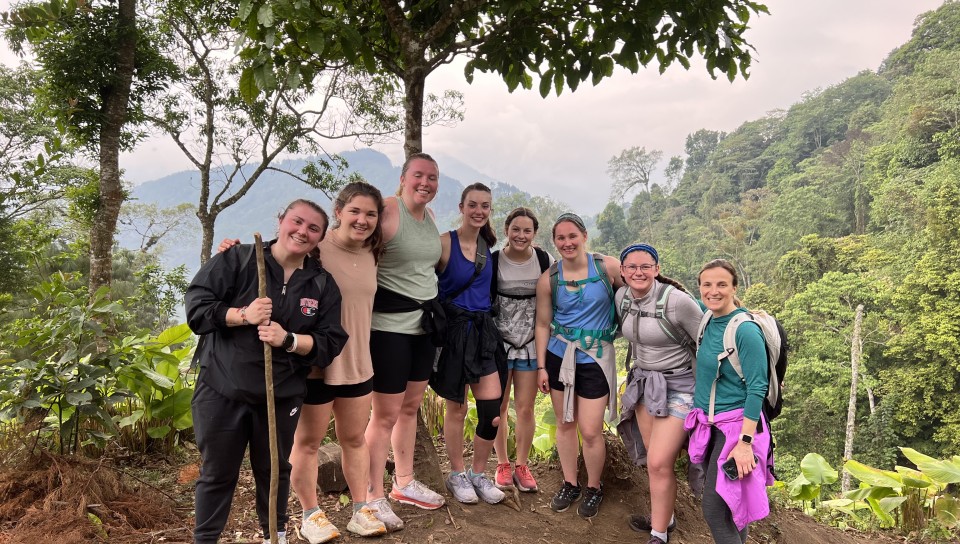
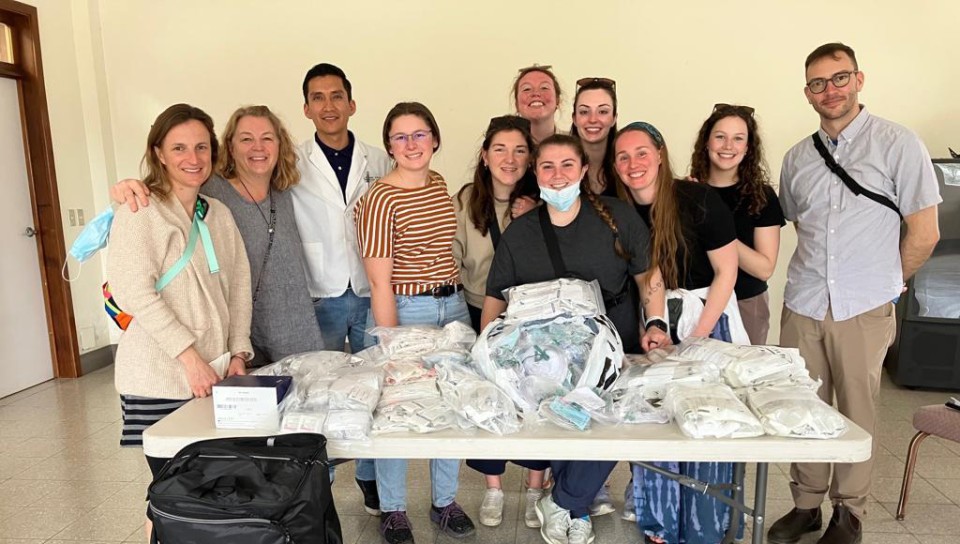
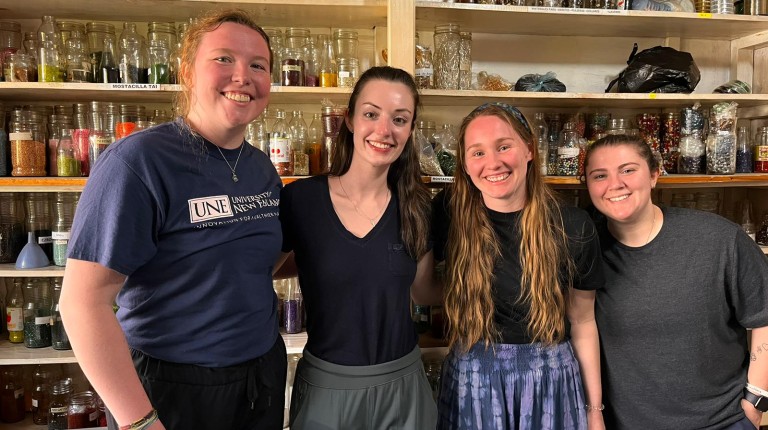
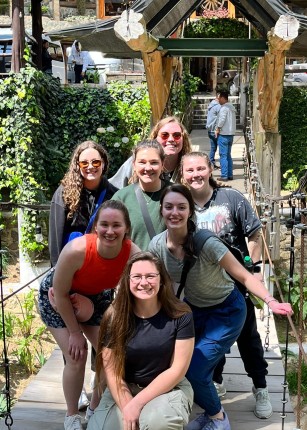
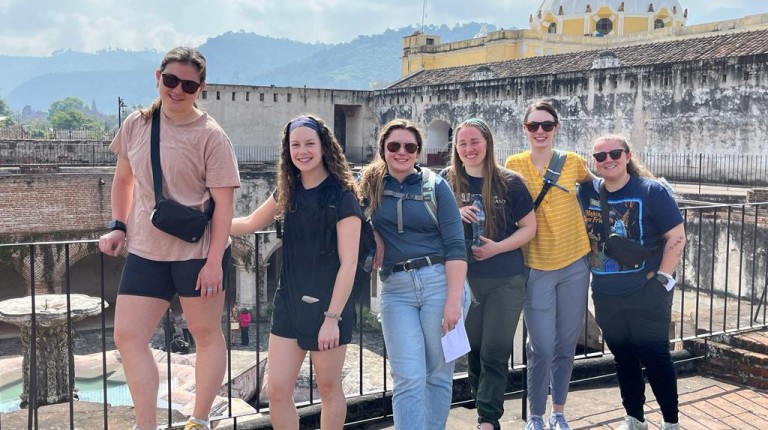
The Global Advantage
But the trip wasn’t only focused on clinical settings. A three-hour hike (that ended up taking five hours) allowed the group to take in breathtaking mountain views, and a trip to Lake Atitlán afforded them the opportunity to see Central America’s deepest mainland body of water. Students were granted hands-on knowledge of Guatemalan heritage through chocolate-making classes and a tour of a coffee bean farm and production facility. On their second day, the group attended a shaman service — a first for all.
“It was wonderful to understand more about Guatemala’s culture and who they are as a country and about their cultural heritage,” Gagne reflected. “This experience added so much depth and life to my learning through understanding how to better communicate with others and have empathy.”
Watch highlights from days 4-6
“[Empathy] will teach you to better understand the world and better understand yourself, as well,” she added.
This trip gave me a chance to … understand how we can really touch people’s souls and get them back to the meaningful things they love doing.” — Kiara Boeck (M.S.O.T., ’24)
The benefits of a global education were not lost on Boeck, who said the trip will make her a better health care provider when she graduates.
“I think the benefit of studying abroad is really getting to know yourself as a professional and where you kind of fit into the world,” she said. “As a professional, it was important to see how the social determinants of health define the kind of care and access to care that people have, since I know that we’ll encounter patients in similar circumstances. This trip gave me a chance to advocate for the occupational therapy profession and understand how we can really touch people’s souls and get them back to the meaningful things they love doing.”
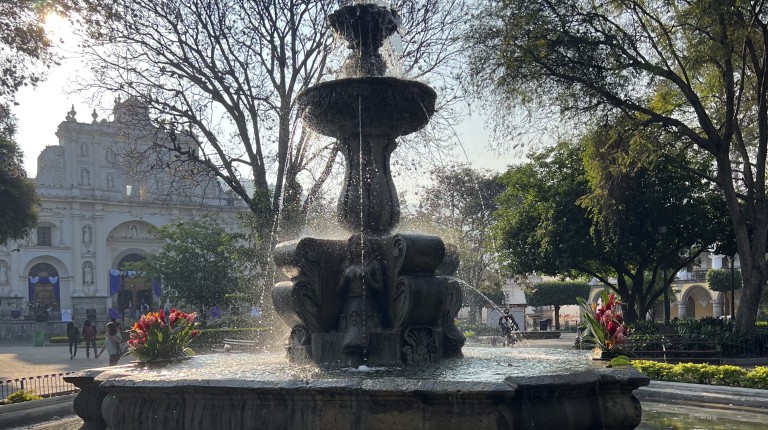
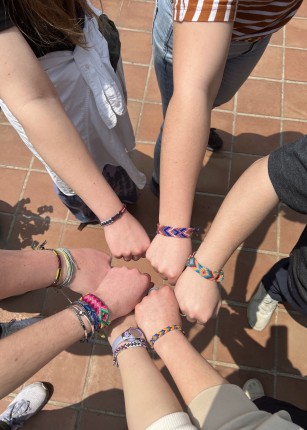
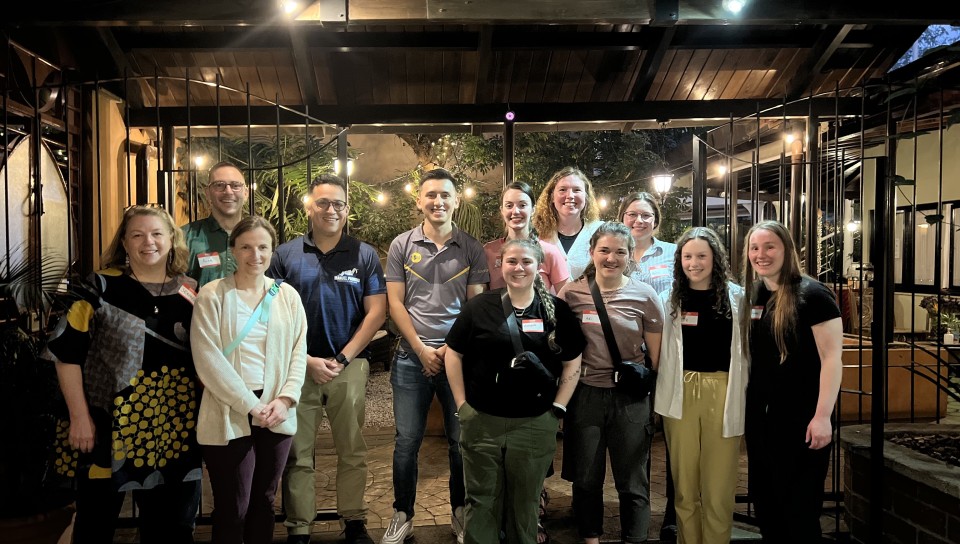
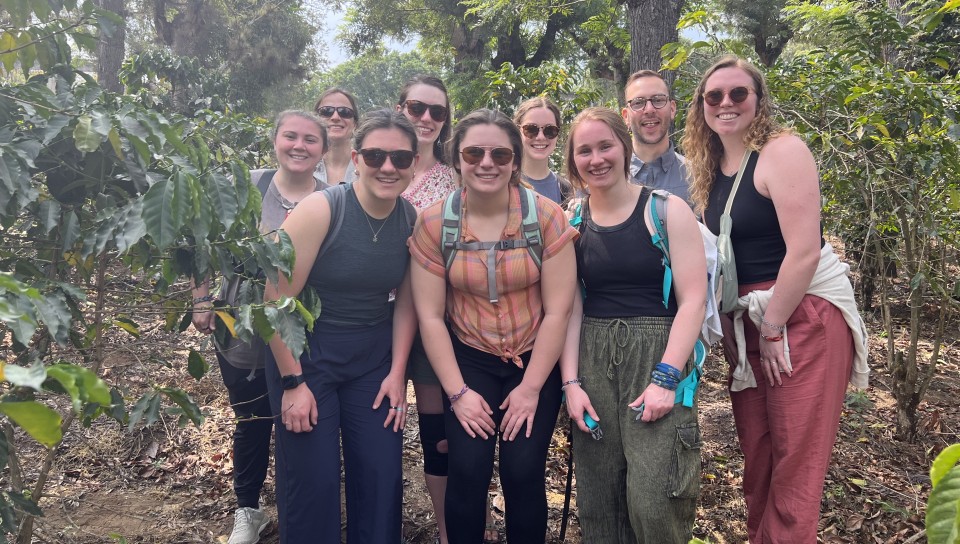
Interprofessional Education in Action
Both students commented that the trip also gave them a deeper appreciation for interprofessional patient care and each other’s field of study.
“The conversations that came from working between the two really added to the experience,” Gagne said, while Boeck remarked that, “the power of having different perspectives on the trip and navigating those two collaborative approaches was wonderful.”
Adam DePrimo, Ph.D., OTR/L, assistant professor of occupational therapy at UNE, remarked that such international, interprofessional trips contribute to the formation of students’ professional identities and aid in developing skills of cultural humility in becoming competent and responsive practitioners.
Watch highlights from days 7-8
“The awesome part about studying and working with human occupation is being able to explore the diverse ways it is represented across the human experience,” DePrimo said. “The opportunity to learn abroad allows for a unique experience that engages the students to think about the most mundane, taken-for-granted-activities — anywhere from speaking and thinking in a foreign language, to navigating personal activities of daily living in an unfamiliar context, to the sociopolitical awareness of practicing critical reflexivity about their presence as American providers-in-training abroad.”
Jennifer Audette, PT, Ph.D., director of physical therapy at UNE, described such learning opportunities as transformational.
"The opportunity to learn more about how different health care models work opens participants' eyes to new ways of thinking about what we do here at home and to think critically about access and health justice around the world,” she said.